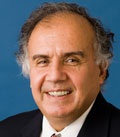The EU Green Deal and the Maghreb Countries
The Policy Center for the New South and Istituto per gli Studi di Politica Internazionale (ISPI) are pleased to organize a webinar under the theme “The EU Green Deal and the Maghreb Countries” on Thursday, October 21, 2021 starting 15:00 GMT+1.
In December 2019, the European Commission adopted its landmark European Green Deal, an ambitious policy package intended to make the European Union’s economy environmentally sustainable. The goal is to reach climate neutrality by 2050, and to turn the transition into an economic and industrial opportunity for Europe. An agreement was also recently reached on the European climate law which turns the EU’s commitment to reduce its net Greenhouse Gas Emissions (GHG) emissions by at least 55% by 2030 (compared to 1990 levels) into a legal obligation under the “Fit for 55” package unveiled on July 14th 2021.
In addition to GHG abatement goals, this package includes among others, a proposal for its long-discussed carbon policy measure, the EU Carbon Border Adjustment Mechanism (EU CBAM), a charge levied at the borders of the EU, meant to avoid carbon leakage and encourage EU trading partners to accelerate their decarbonization strategies.
Another important and explicit goal of the European Green Deal is to strengthen the EU’s global leadership. One of the ways it seeks to do this is by establishing environment, energy, and climate partnerships with the states of the EU’s southern neighborhood, including Maghreb countries. The EU can achieve this by pursuing key policy actions that could collectively be embedded under ‘Green Deal diplomacy’.
In this framework, this webinar will serve as a platform to discuss the following questions:
- The European Commission was clear when publishing the European Green Deal that Europe will not be able to achieve its goals by acting alone. The EU will need to use its influence, expertise, and financial resources to mobilize neighbors and partners in this shared endeavor. Such an approach is also in line with the EU Global Strategy and the European Neighborhood Policy. How can Maghreb countries derive benefit from the EU green deal?
- The scope of the policy initiatives set out in the Green Deal will extend beyond EU borders. Indeed, one key external dimension of the EU green deal will be its implications for its southern neighbors in the Maghreb region and the impact on their trade, possibly unleashing profound socio-economic transformations in the region. One example is the EU’s energy transition, which will steer it from classic fossil fuel trade toward new schemes such a cross-border power grid interconnectivity and green hydrogen trade. What can be the geopolitical impact on oil exporting countries – i.e. Libya, Algeria and Egypt - and how can the EU engage with those countries to foster their economic diversification? Besides energy, what other new ties need to be spurred with Maghreb countries in order to safeguard their socio-economic welfare?
- The EU shares strong economic ties with Maghreb countries and is their prominent trade partner. The Maghreb countries have engaged in different degrees to the Paris agreement and will thus be affected disparately by the EU CBAM if it comes into effect. What is the expected reaction of different countries in the region? What are the countries expected to embrace and those that are expected to retaliate against this measure?
-

Amine Bennis, Visiting Fellow, European Council on Foreign Relations
Amine Bennis is a visiting fellow at the European Council on Foreign Relations. He has substantial experience of working on energy and infrastructure transactions and policy initiatives with governments and the private sector, with a geographical focus on the southern and eastern Mediterranean region.
A graduate of the Universities of Paris II Panthéon-Assas, Sciences Po Paris, and the Fletcher School of Law and Diplomacy, he lectures at the Universities of Paris II Panthéon-Assas and Montpellier in France, and regularly publishes on topics at the intersection of development finance, international security, and geopolitics.
-

Rim Berahab, Senior Economist, Policy Center for the New South
-

Ayman Cherkaoui, Coordinator and Chargé of Strategic Development, Mohammed VI Foundation for Environmental Protection
Mr. Ayman Cherkaoui is the Coordinator for the Mohammed VI Prize for the Climate and Sustainable Development as well as Strategic Development Officer at the Mohammed VI Foundation for Environmental Protection. Ayman is the Deputy Chair for the IUCN World Commission on Environmental Law. Ayman is also Regional Facilitator of Major Groups and Stakeholders, Africa, elected by African organizations accredited to UNEP. Ayman is also Lead Counsel for Climate Change at the Center for International Sustainable Development Law, Obama Foundation: Africa Leader, Ambassador for the Adaptation without Borders Initiative, Atlantic Dialogues Emerging Leader, Member of the IUCN WCEL and Member of the Advisory Group of the Online Climate Negotiations SEI Project. Ayman has academic background in Climate Change, Sustainable Development, Finance, Law and Engineering. Previously, he was Executive Director of the Global Compact Local Network in Morocco for UNDP/CGEM, Special Advisor to the Presidency of COP22 as well as Legal Advisor to the Environment Minister of Morocco, Judge for the SDG Action Awards, and worked for Valyans Consulting and the International Air Transport Association.
-

Uri Dadush, Senior Fellow, Policy Center for the New South
-

Larabi Jaïdi, Senior Fellow, Policy Center for the New South
-

Slim Othmani, President, Cercle d’Action et de Réflexion autour de l’Entreprise
Mr. Othmani is the Founder and President of the Think Tank Club d’Action et de Réflexion autour de l’Entreprise (CARE). He is also the Co-founder and Vice-President of APAB (Algerian drink producers association), Co-Founder and President of MEF (Maghreb Economic Forum) - Tunisia, Head of the Algerian Task Force that wrote the first Algerian Code of corporate governance, Co-founder of the Algerian institute of corporate governance Hawkama El-Djazaier, Vice-President and founder of Injaz Al-Arab Algeria a Junior achievement entrepreneurship program, Founding Member of the Algerian civil society initiative NABNI, Founding member of “Le Développement durable et culturel de Tamentit” to promote the history and culture of the Touat region (desert of Algeria).
Mr. Othmani holds a degree in computer engineering from the University of Mathematics and computer sciences in Tunis, an executive MBA from the Mediterranean school of business in Tunis.
-

Ilaria Urbani, MENA Region Project Manager, RES4Africa Foundation
Ilaria Urbani works as MENA Region Project Manager in RES4Africa Foundation supporting Africa energy transition, mainly covering Morocco, Tunisia, Egypt and Algeria. Ilaria has been managing the Foundation strategic projects in the wider international renewable energy community across governments, private sector and international organization. Before joining RES4Africa, Ilaria worked for Enel as Trader of Energy and Renewable Energy Certificates.









